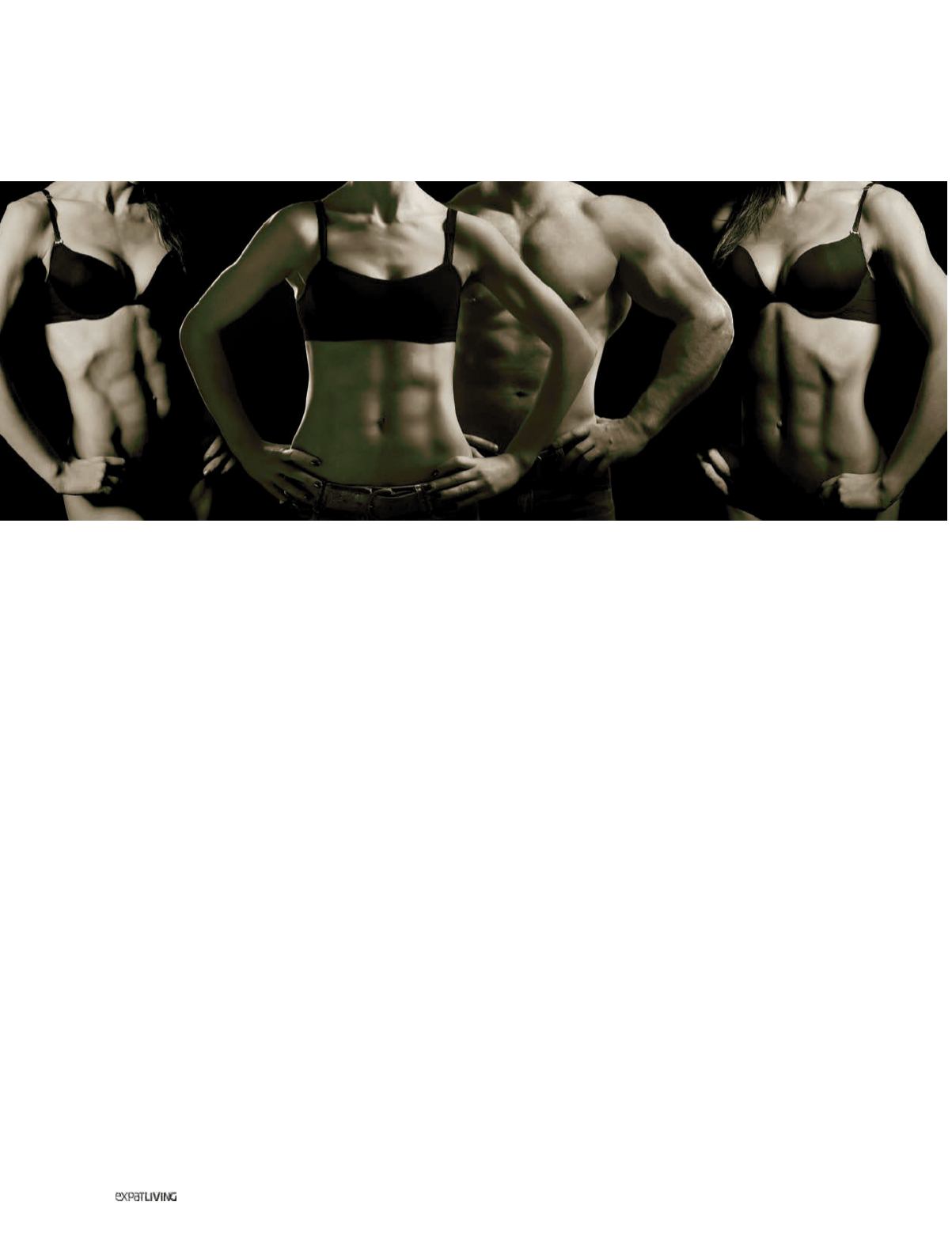

HEALTH&FITNESS
298
May15
If you’ve any hope of achieving the kind of body pictured
here – or even anything vaguely like it, nutrition will play an
important role. To radically reshape your body in a way that’s
healthy, holistic and sustainable calls for a comprehensive
approach that encompasses not only a dedicated exercise
regimen, but perhaps also a rethinking of your entire
lifestyle, especially your diet.
Verne Maree
talked turkey
to senior coach and exercise nutrition guru, PETE FISHER
of UP Fitness, famous for transforming its clients into lean,
mean, ripped machines.
Ultimate Nutrition
Apart from creating an exercise plan, how important is a
client’s nutrition?
It’s absolutely essential – and that’s because if your effort towards
following a sound and appropriate nutrition plan doesn’t match your
effort in the gym, you simply won’t achieve your goals. Before long, you’ll
become disillusioned with what seems to be a fruitless process. You
might incorrectly conclude that proper training isn’t for you, and revert
back to the “cross-trainer and bagels” approach.
Right from the start, we ask new clients to provide us with a sample
three-day food diary, with one of these days being over a weekend. From
that, we can gauge their starting caloric intake, see what kinds of foods
they choose, and look for the easiest areas to fix first.
You say that fat-loss is not simply about reducing calories.
Why is that?
Though calories do count, to think that you can achieve your goals merely
by reducing calories is an oversimplified approach to nutritional science.
Calorie intake is an important variable that must be manipulated over
time so as to avoid stagnation. Being adaptive, human metabolism tends
to respond to food intake over time by increasing or by slowing down.
Focusing purely on calories is where most people go wrong with
dieting. Eating smaller portions of the same
types of wrong foods will tend to turn you into a
smaller version of yourself– not necessarily one
that’s healthier, leaner, stronger or more muscular.
Instead, you need a diet that provides enough of
the proteins and essential fatty acids required for
optimal performance and overall health.
Digestion and assimilation of nutrients is
another important and often overlooked element
of diet. After all, it’s not only what we eat, but
how much of it we can fully digest, absorb and
metabolise that really counts.
Can you explain why the same diet will
not work for everyone?
People are different from one another. They have
different genetics and epigenetics; they have
varying levels of activity and they have wildly
diverse training and dieting histories. For example,
a woman with a history of yoyo dieting will require
a vastly different approach to the male former
athlete who has grown fat on corporate lunches
and evening drinks with clients.
The yoyo dieter requires a far gentler approach
that includes educating her about the impact that
years of dieting has had on her metabolism; she
must understand that the initial phase of her diet
will be more about steadying the ship than bringing
about dramatic changes in body composition.
The lapsed athlete might be a candidate for a
more aggressive approach from the outset, as
he’s likely to have decent muscle mass, has no
history of dieting and understands how to push
himself in the gym.
Valeriy Lebedev, Petrjoura | Dreamstime.com



















